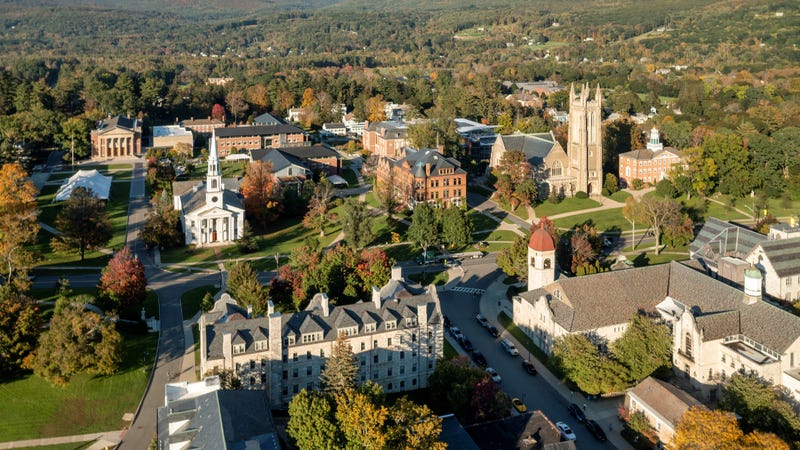
Williams College, a private liberal arts school with about 2,000 undergraduate students in Massachusetts, announced on April 13 that they will eliminate loans and work-study jobs from all of its financial aid packages, and replace them with grants.
The all-grant program will begin for the fall 2022 semester, as the school said in the news release that it "took a major step toward what it calls a goal of 'true affordability' for students receiving financial aid."
Williams College said that they are the first in the country to fully eliminate loans. Williams President Maud S. Mandel released a separate statement and detailed how many students the grant program will help, and how much it will cost the school.
"The all-grant program will benefit 1,100 current students, or roughly 53 percent of our undergraduate student body, at a cost of $6.75M per year. The move will expand our financial aid budget to $77.5M/year—one of the most generous per capita in the nation, thanks to support from alumni," Mandel said.
Williams College has a 15% acceptance rate, and costs roughly $66,540 before aid, and about $19,480 after aid, according to the U.S. Department of Education.
The Washington Post also noted that Williams College has nearly a $4.2 billion endowment, which is much higher than the national average of $1.1 billion.
Mandel went on to talk about the school's financial aid program and how it has helped students in the news release.
"Williams' leadership in liberal arts excellence and affordability drew me here and inspires me every day," Mandel said. "The school’s dual commitments to academic excellence and affordability are a model for ensuring access to an outstanding education.
"That’s why our financial aid packages go so far beyond the cost of attendance, to look at the true cost of participation: all of our financial aid awards include free textbooks and course materials, health insurance, summer storage, funding for travel courses and internships and more. At a school graced with intellectually curious students, a superb program and generous alumni, the all-grant initiative combines these historic strengths in a way that equips our students to get the most out of their education."
Mandel also said in his statement that students will still be able to work jobs on campus to support themselves or their families.
"The new program will not preclude you from working on campus if you choose to," Mandel said. "The difference is that you will be free to choose the employment options that are right for your goals and will be able to keep your earnings for savings, family support or other needs."
Ashley Bianchi, Williams's director of student financial services, told The Washington Post that she understands most colleges and universities will not be able to offer an all-grant program. Although, she hopes the move by Williams will push other colleges to see how they can help students with financial aid.
"Finding nearly $7 million in anyone’s budget is really difficult, no matter what school you’re looking at," Bianchi said. "But what we hope will happen is that other colleges recognize what’s happening here and think about the ways that they spend their money and decide if this is the right fit for them."
Williams also said in their news release that they adjusted their financial aid process in 2021 to reduce the cost of school to middle- and low-income families.
"One in six Williams families saw their parent contribution decrease by $4,500 last year as a result," Williams College said.
Dean of Admission and Student Financial Services Liz Creighton said in the news release that she believes the all-grant program will allow students to focus on learning and not have to worry about the cost of school.
"More recently we've expanded our financial aid packages to address the hidden and sometimes not-so-hidden costs that prevent students from taking full advantage of all the opportunities available," Creighton said. "The all-grant initiative is a major new step on our path toward true affordability. It's all part of ensuring that the exceptional students we admit can focus on what they'll learn—not what they and their families earn."


